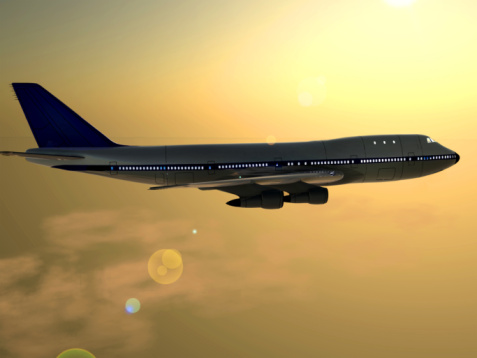The Most Fuel-Efficient U.S. Airlines
September 11, 2013 by Paul Ausick
A Washington, D.C.-based research group, The International Council on Clean Transportation (ICCT), published on Wednesday a study that ranks 15 U.S.-based airlines on the fuel-efficiency of their operations in 2010. The research methodology took into account the fact that airplanes burn fuel to provide both mobility (moving passengers over a distance) and access (servicing multiple cities with multiple flights).
Based on the ICCT research, here are 2010’s top five airlines in fuel efficiency:
- Alaska Air Group Inc. (NYSE: ALK) — 1.11
- Spirit Airlines Inc. (NASDAQ: SAVE) — 1.09
- Hawaiian Holdings Inc. (NASDAQ: HA) — 1.09
- Continental Airlines — 1.07
- Southwest Airlines Co. (NYSE: LUV) — 1.06
A score of 1.0 reflects the industry average. United Airlines, now merged with Continental as United Continental Holdings Inc (NYSE: UAL), scored 1.0 in the ICCT rankings.
Here are the scores for the five least efficient carriers:
- Allegiant Travel Co. (NASDAQ: ALGT) — 0.88
- American Airlines — 0.89
- AirTran Airways — 0.94
- Delta Air Lines Co. (NYSE: DAL) — 0.96
- Sun Country Airlines — 0.97
Here are a few of the ICCT’s observations:
- Alaska, Spirit, and Hawaiian are “relatively small carriers serving geographically limited markets.”
- Continental was the most fuel efficient of the legacy (those established before deregulation).
- Many of the worst performers were or were subsequently involved in mergers.
- The most profitable airlines during the period 2009 to 2011, Allegiant , was the least efficient.
Globally aviation greenhouse gas emissions are expected to increase by 4% annually through 2050. If that estimate comes true, aviation will account for 15% of man-made CO2 emissions by that year.
Essential Tips for Investing: Sponsored
A financial advisor can help you understand the advantages and disadvantages of investment properties. Finding a qualified financial advisor doesn’t have to be hard. SmartAsset’s free tool matches you with up to three financial advisors who serve your area, and you can interview your advisor matches at no cost to decide which one is right for you. If you’re ready to find an advisor who can help you achieve your financial goals, get started now.
Investing in real estate can diversify your portfolio. But expanding your horizons may add additional costs. If you’re an investor looking to minimize expenses, consider checking out online brokerages. They often offer low investment fees, helping you maximize your profit.